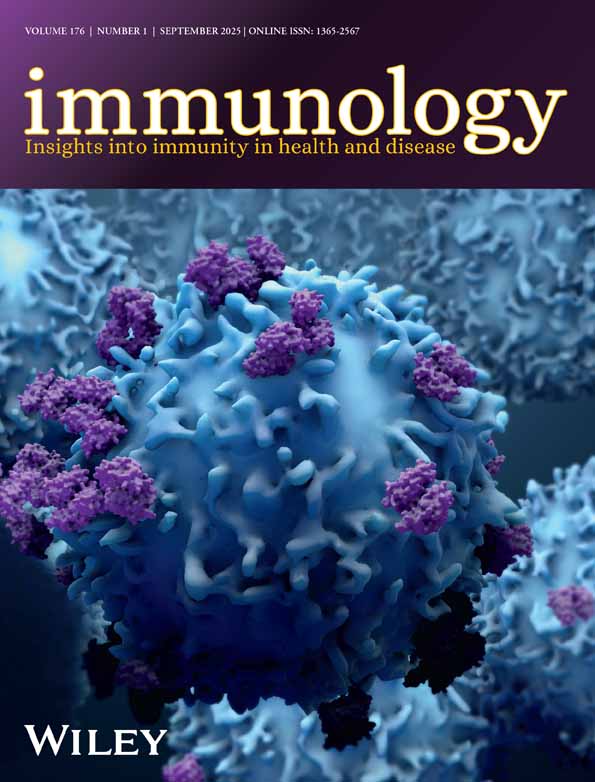Stem cell factor enhances immunoglobulin E-dependent mediator release from cultured rat bone marrow-derived mast cells: activation of previously unresponsive cells demonstrated by a novel ELISPOT assay
Abstract
Mucosal mast cells (MMC) are important effector cells in the immune response against gastrointestinal nematodes. We used cultured rat bone marrow-derived mast cells (BMMC) as an in vitro model of MMC to study the effects of the multifunctional cytokine stem cell factor (SCF) on immunoglobulin E (IgE)-dependent secretion of granule mediators. SCF (≤1000 ng/ml) was not a direct secretagogue for these cells, but it significantly enhanced IgE-mediated secretion of the granule constituents rat mast cell protease-II (RMCP-II) and β-hexosaminidase from mature BMMC in a dose-dependent manner (>10 ng/ml). Maximum up-regulation of secretion occurred after cells were pretreated with SCF (50 ng/ml) for 5 minutes before challenge with anti-IgE, but the effect then declined and was absent in cells incubated with the cytokine for 3 to 24 h. In a novel ELISPOT assay developed to identify individual BMMC secreting RMCP-II, the proportion of mature BMMC responding to anti-IgE was significantly increased by treatment with SCF. To investigate this effect further, the percentage release of RMCP-II and β-hexosaminidase from populations of mature BMMC was directly compared to the proportion of individual cells releasing RMCP-II as detected by ELISPOT. The release of both mediators was enhanced by SCF, and the increased percentage release reflected both an increased proportion of secreting cells, and enhanced mediator release from individual cells. These results suggest that SCF can enhance IgE-dependent mediator release from BMMC not only by augmenting the secretory response from individual cells, but also by activating previously unresponsive cells.




